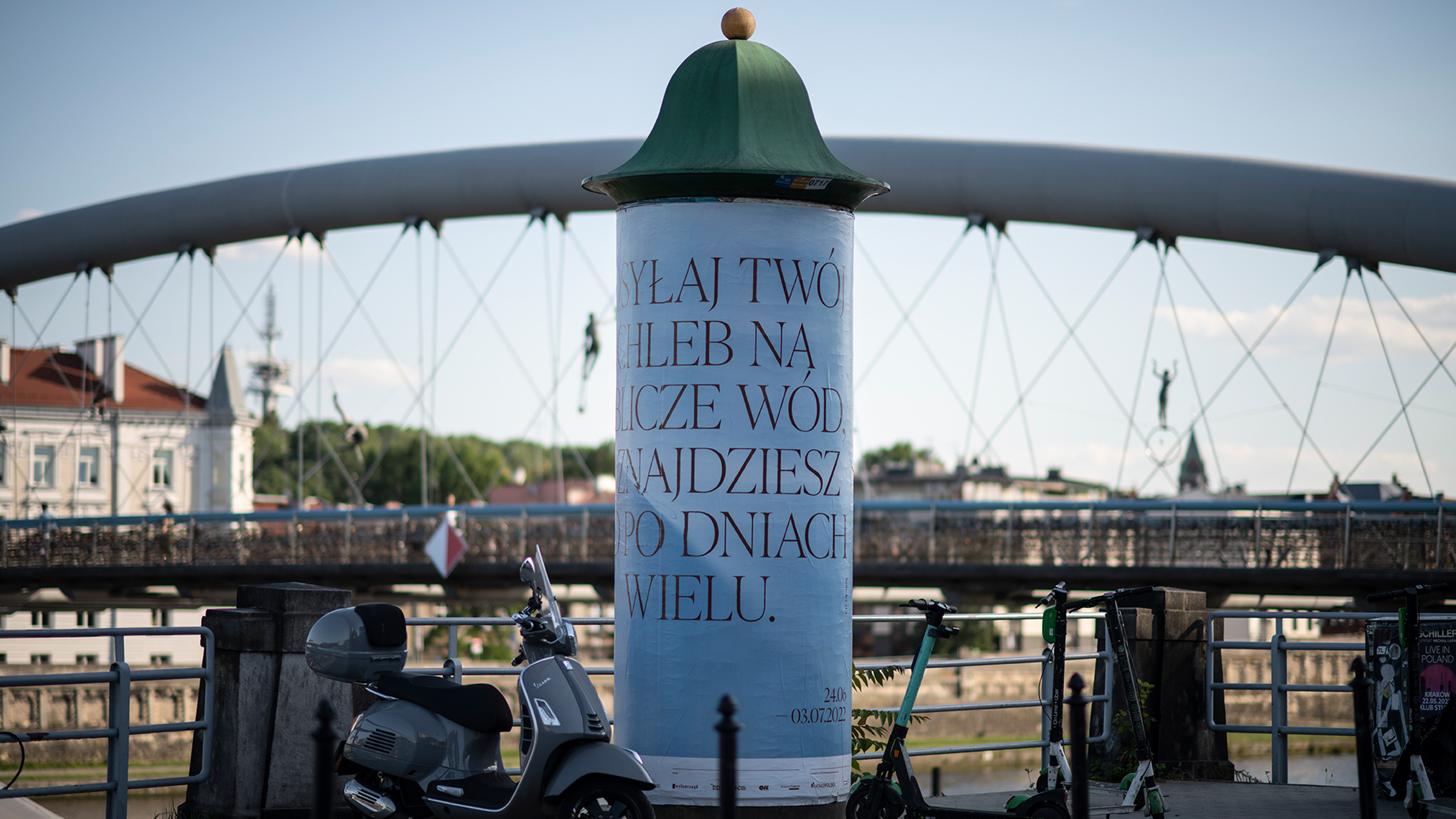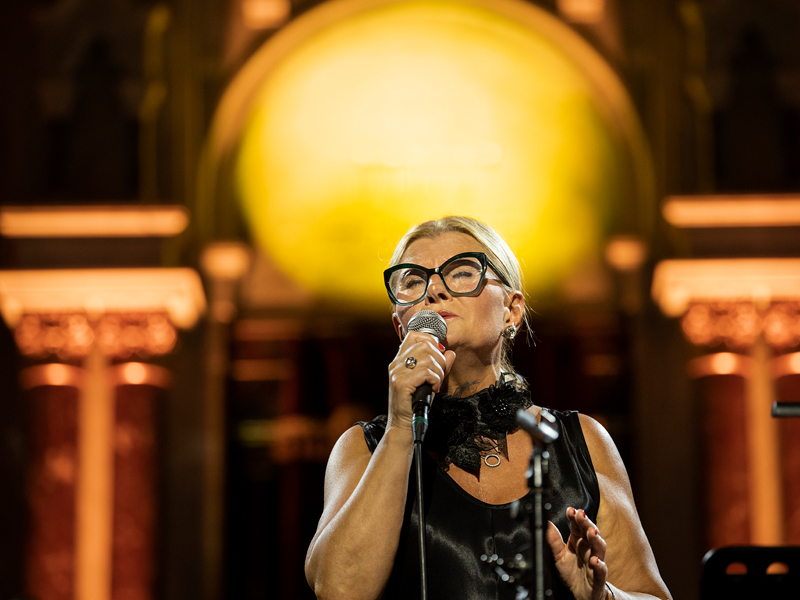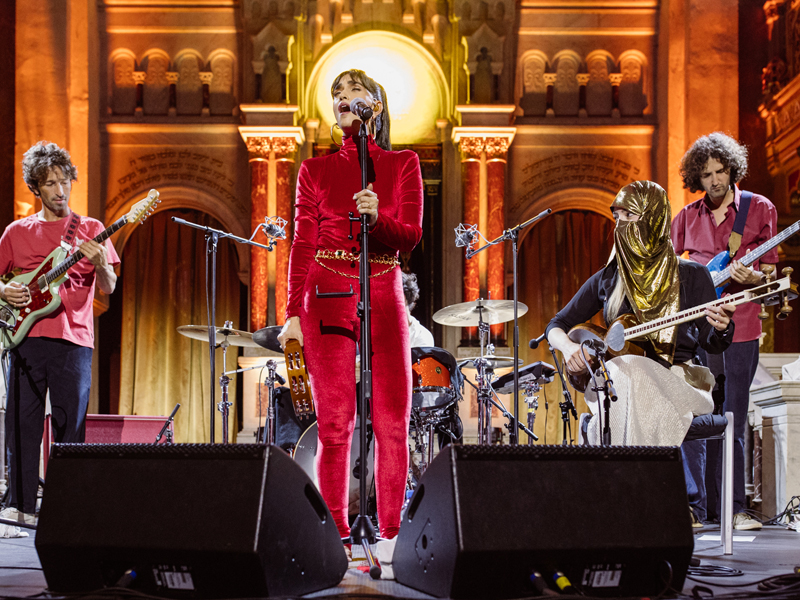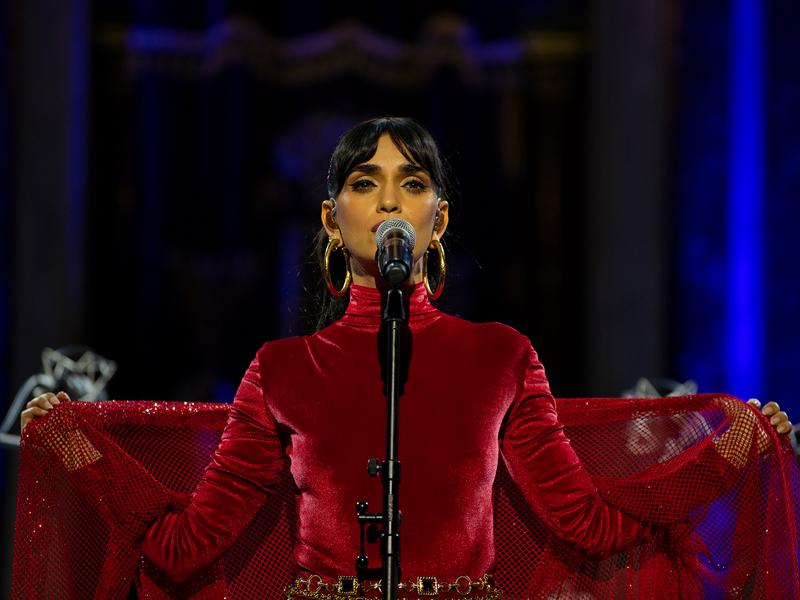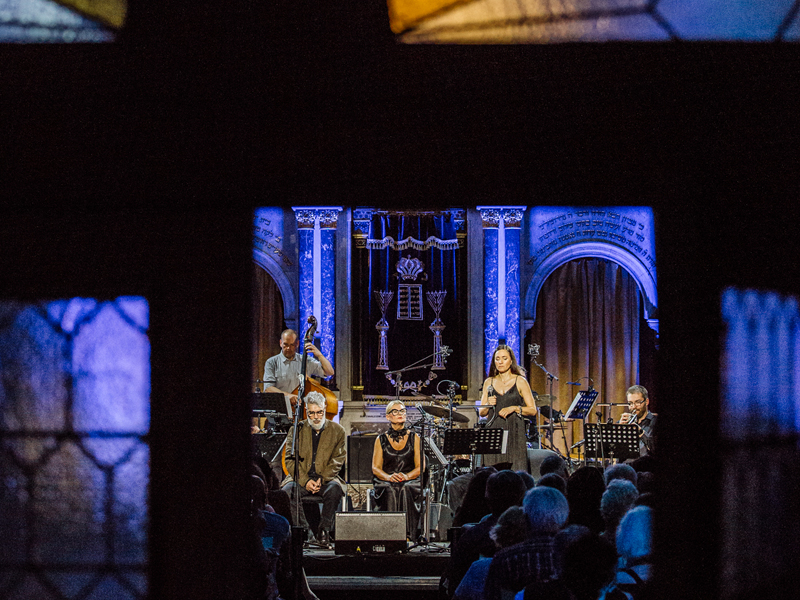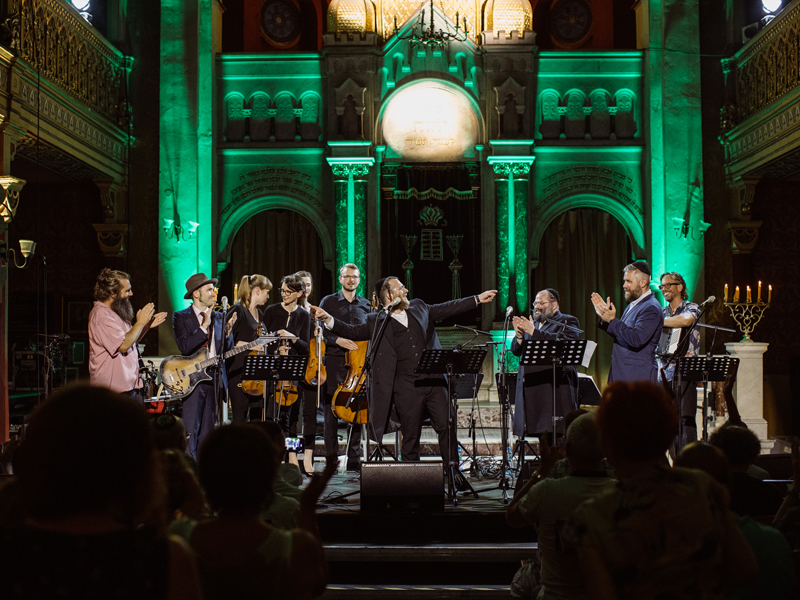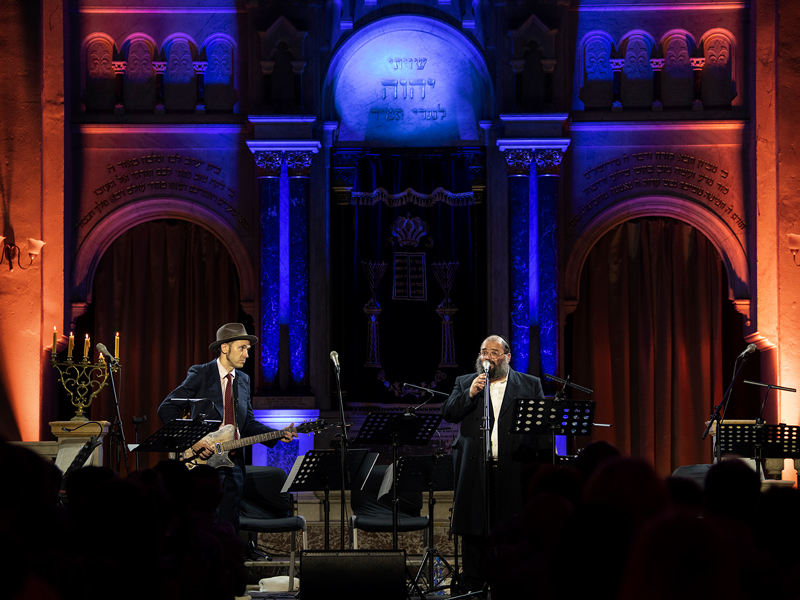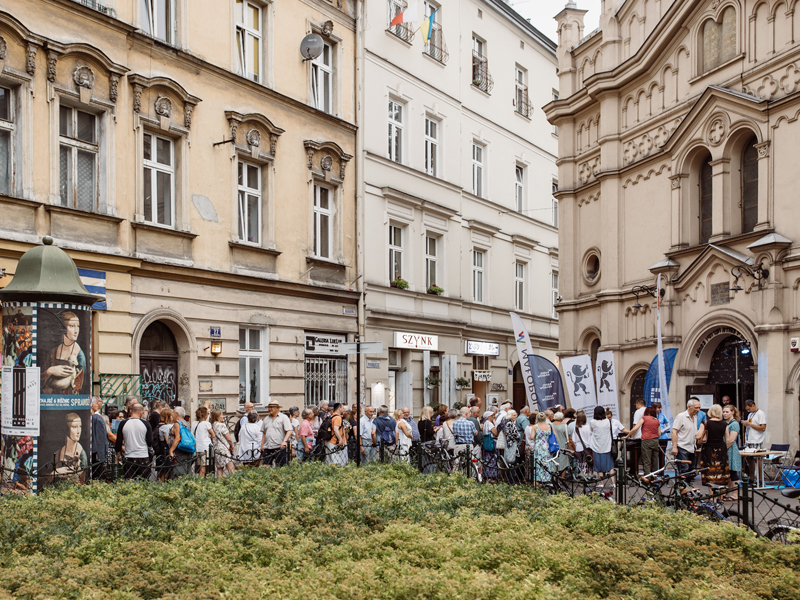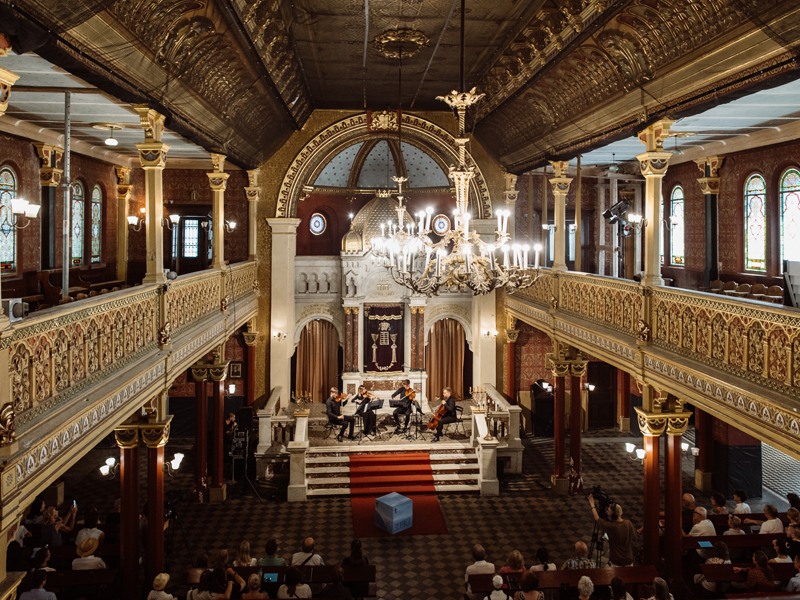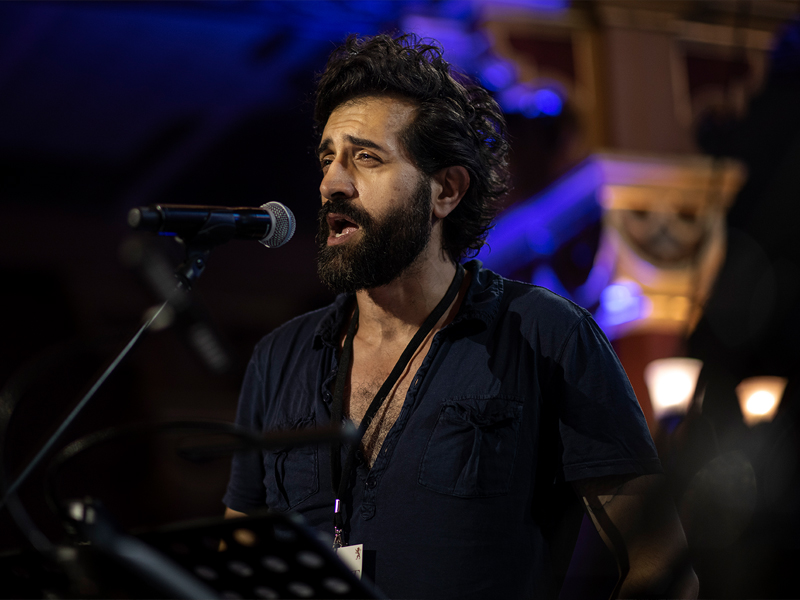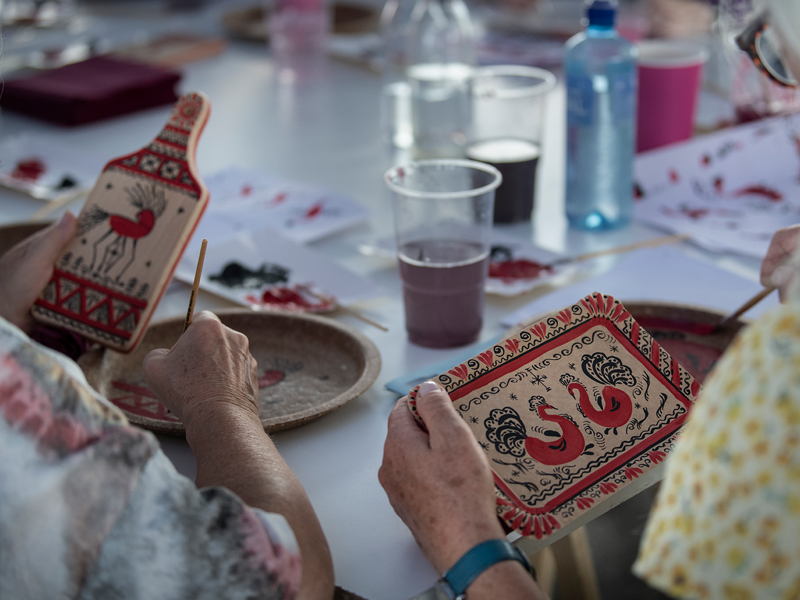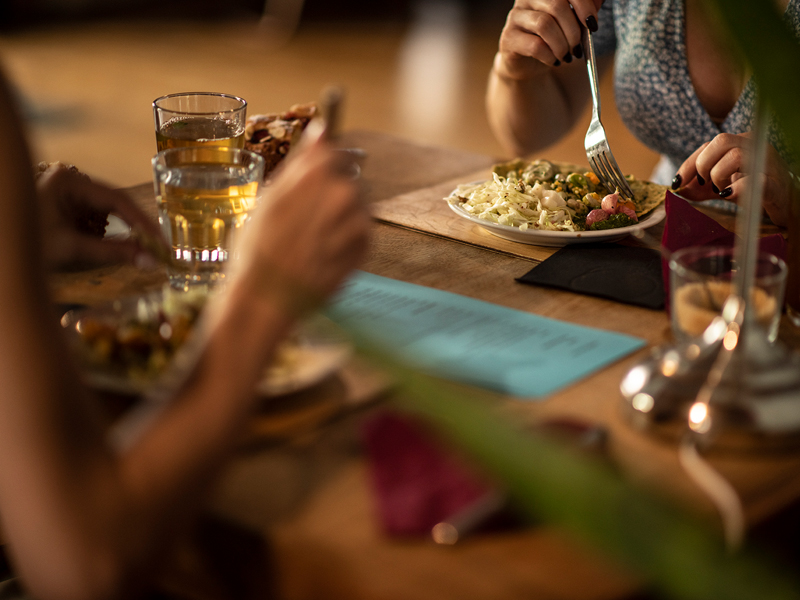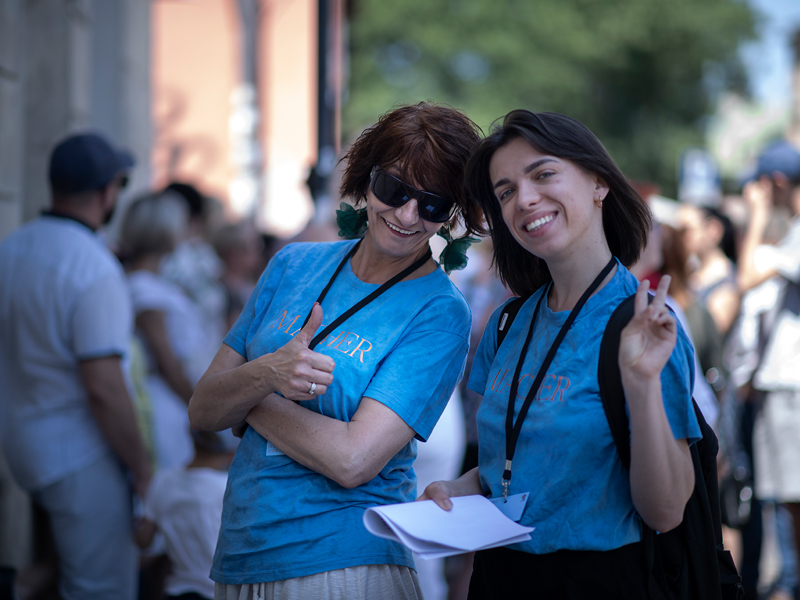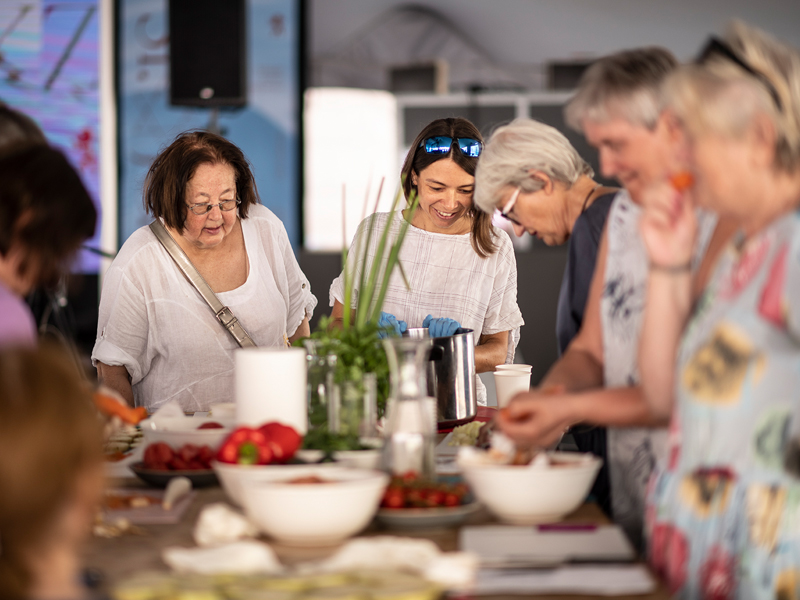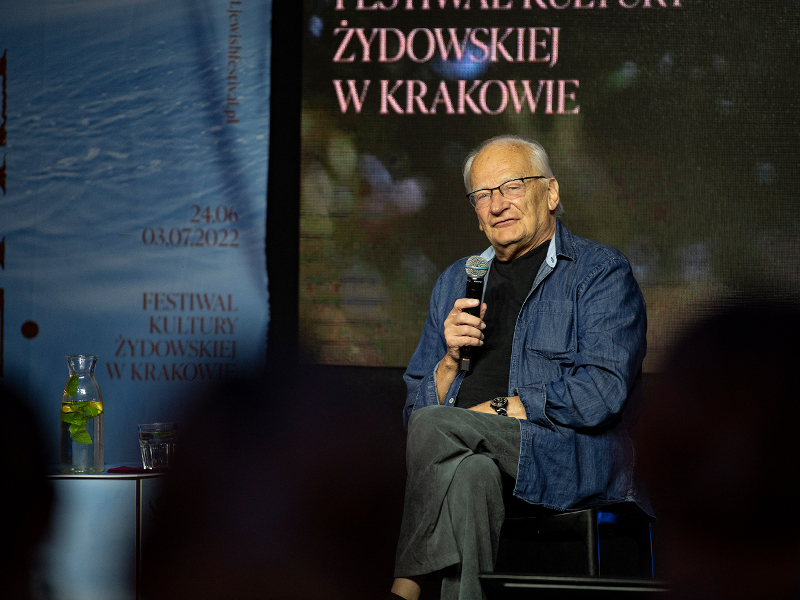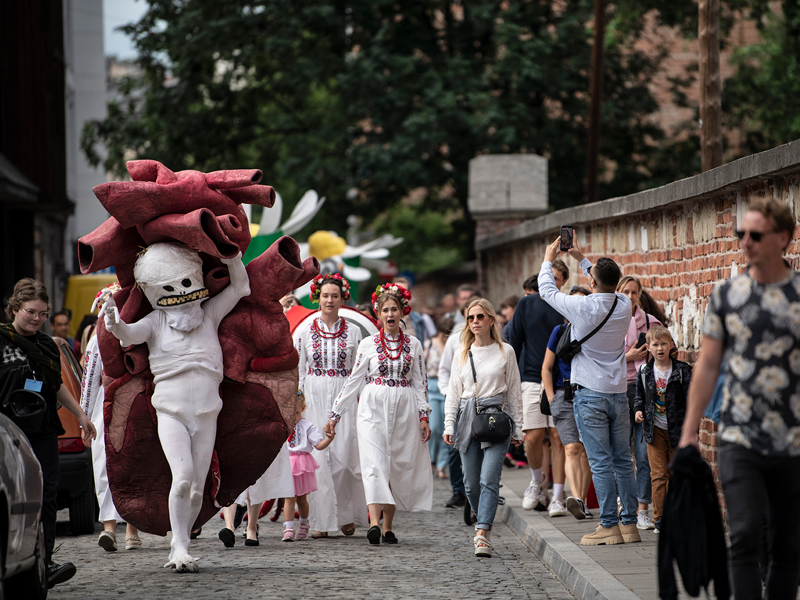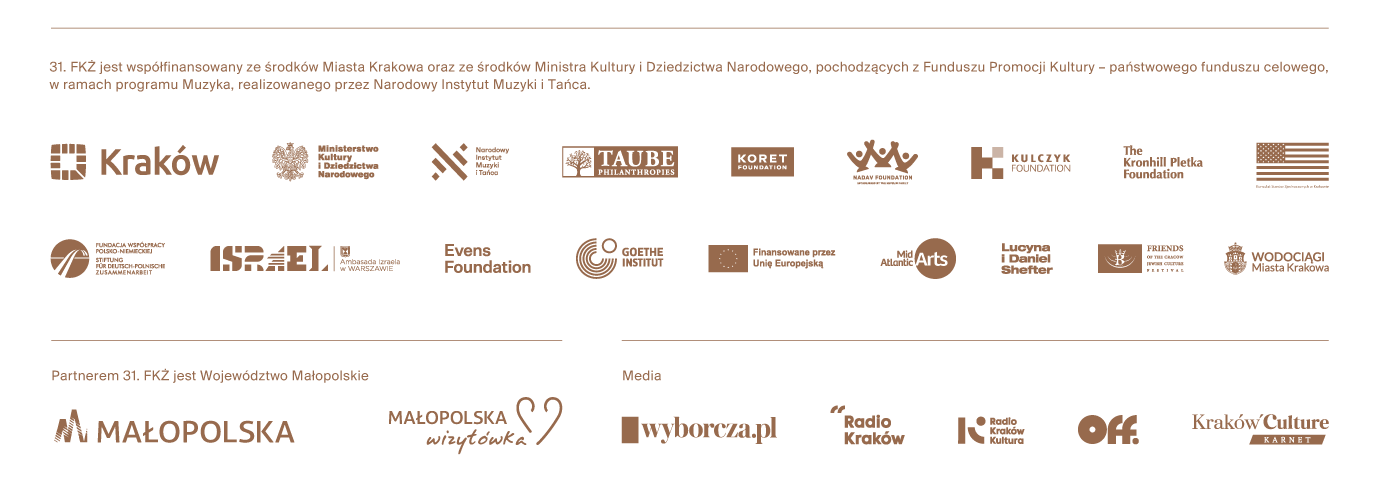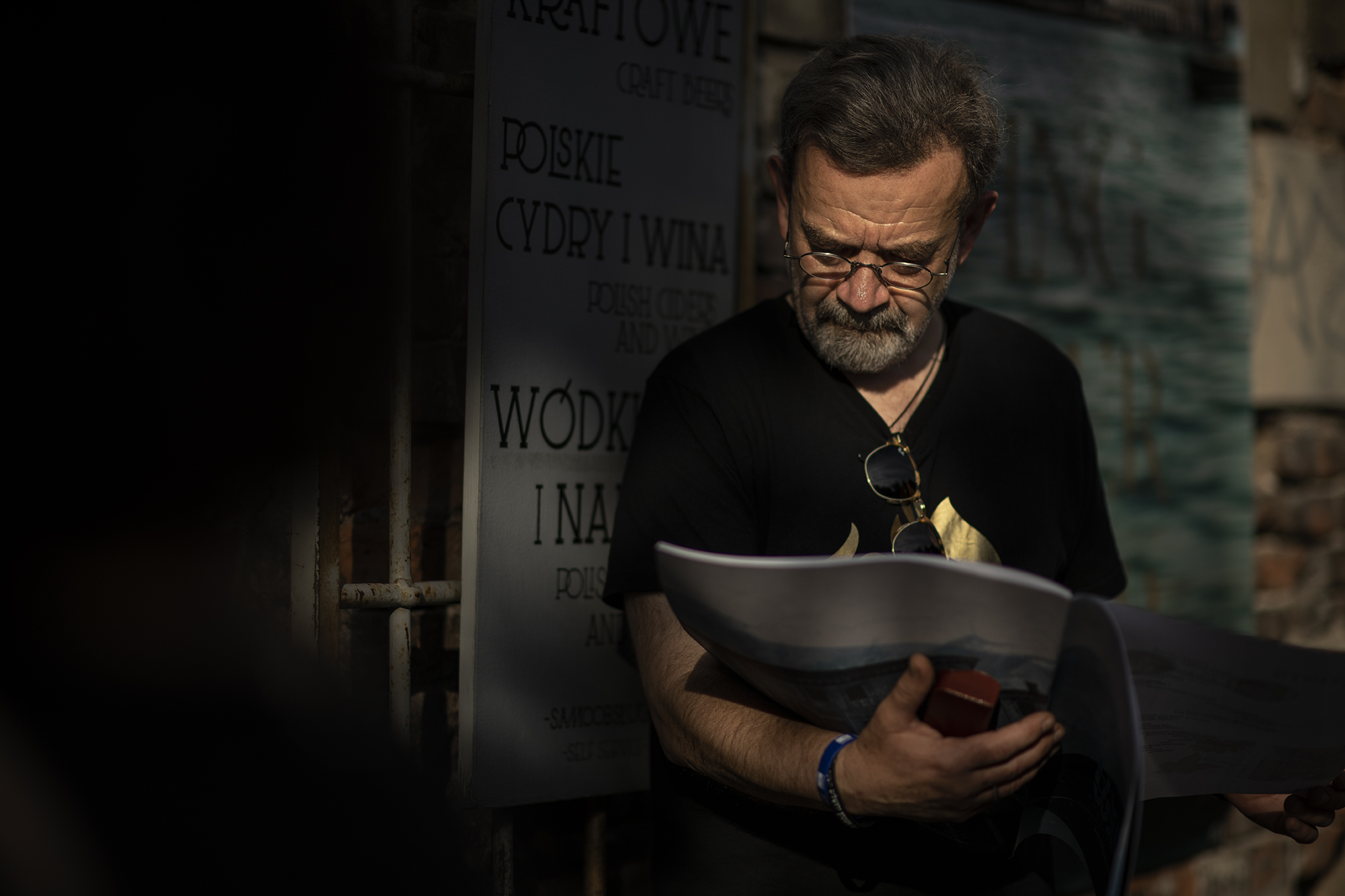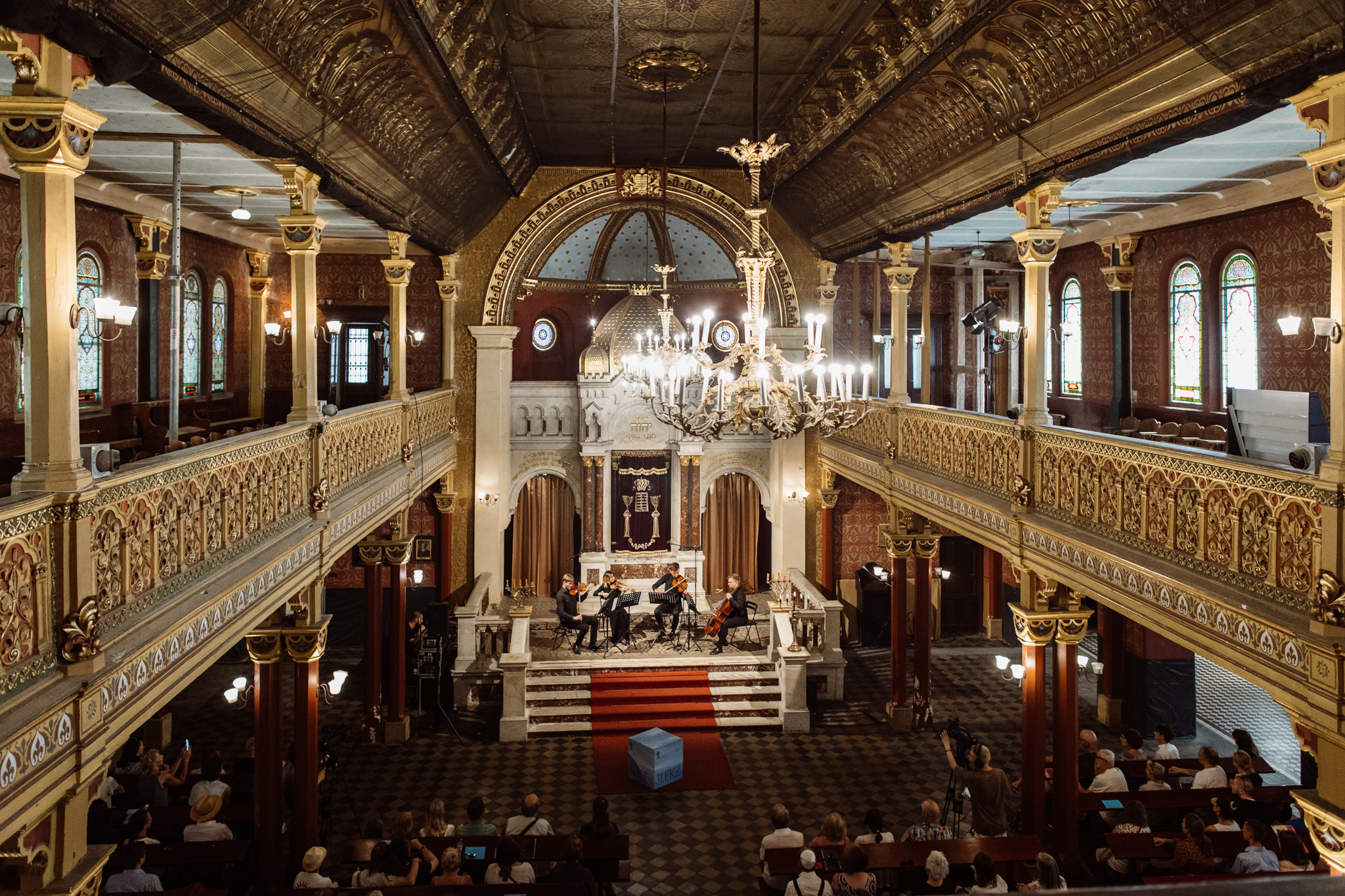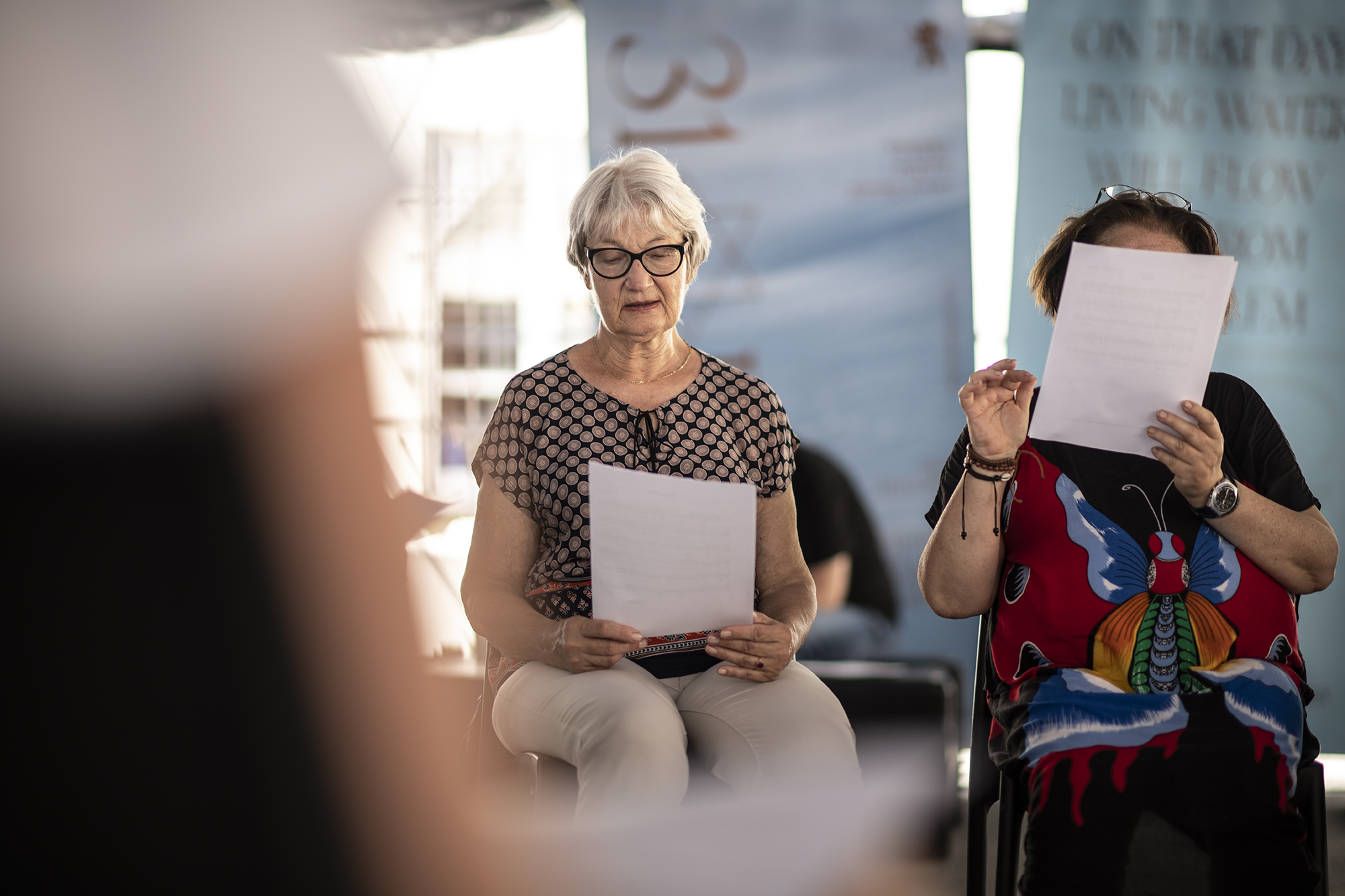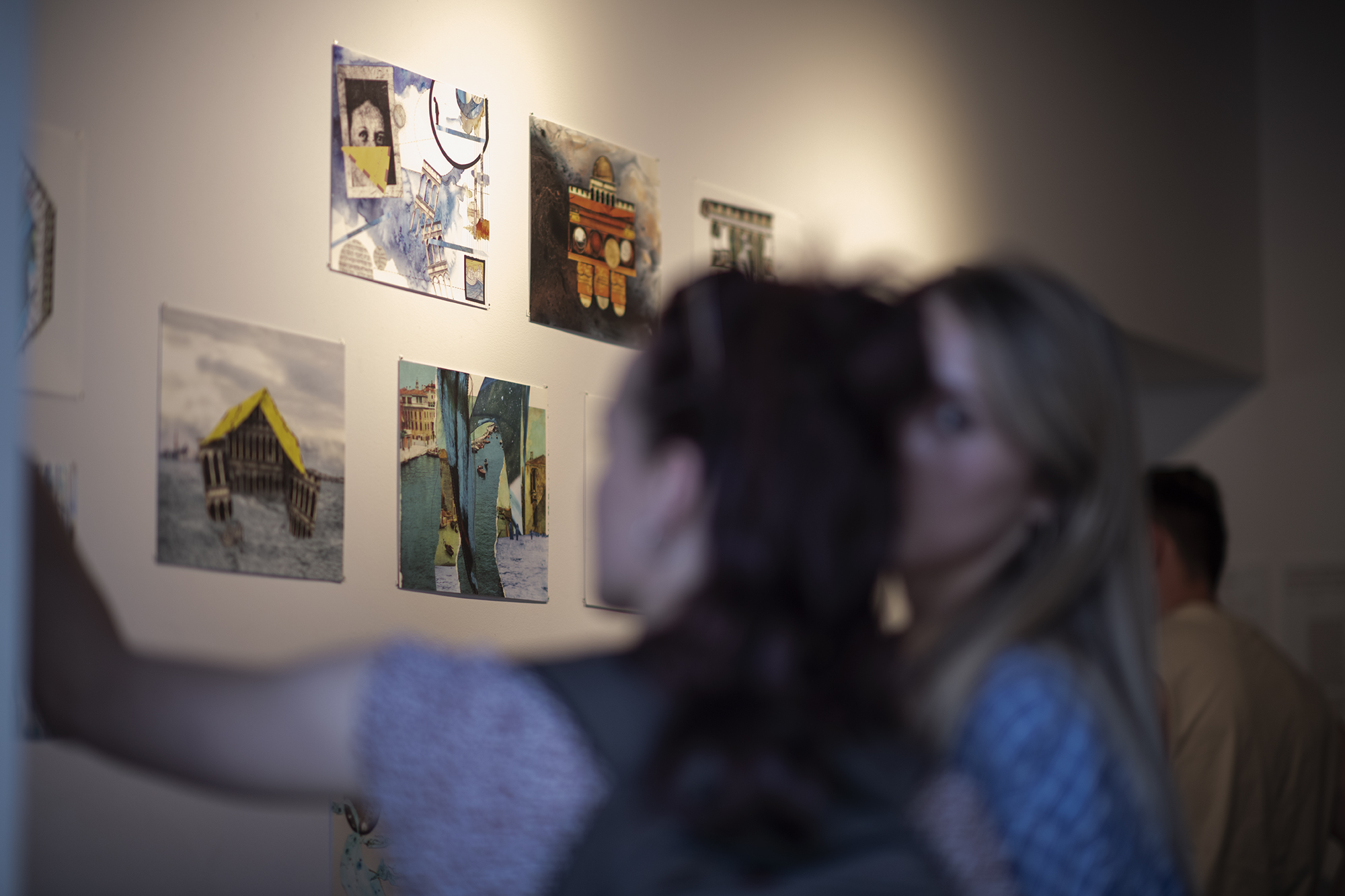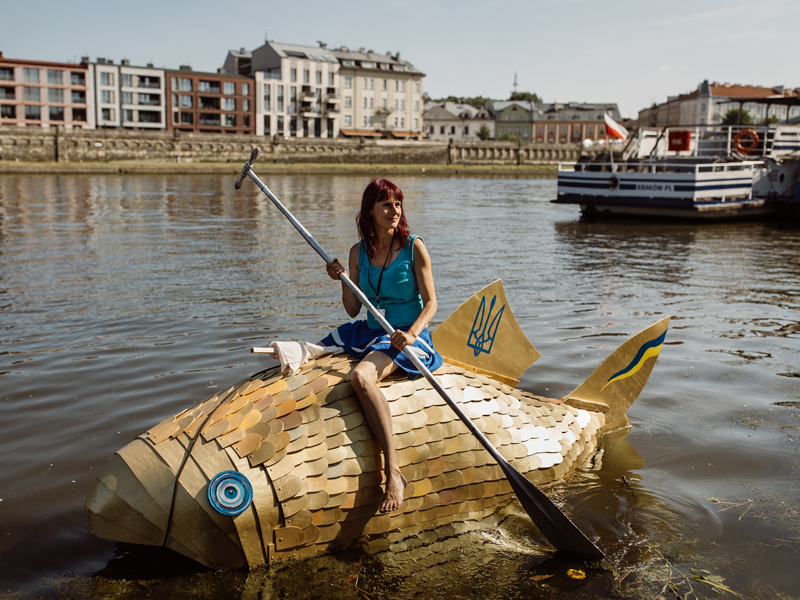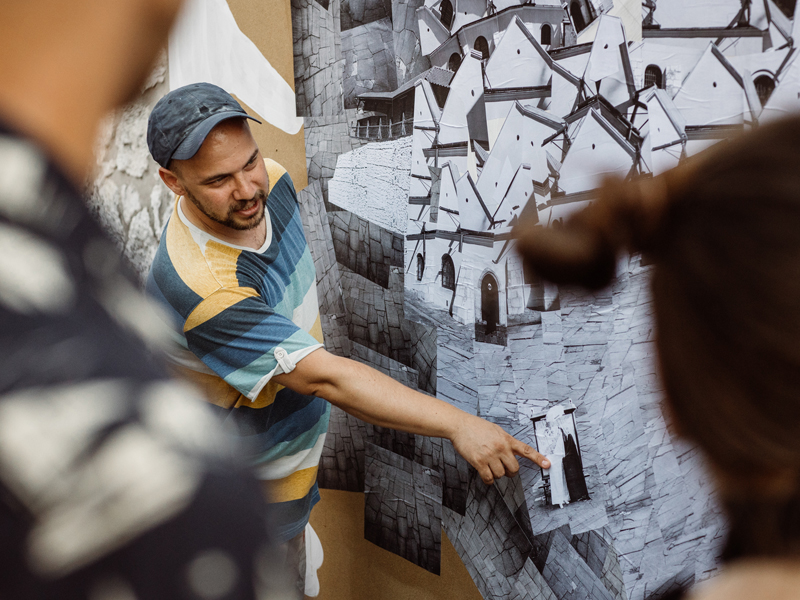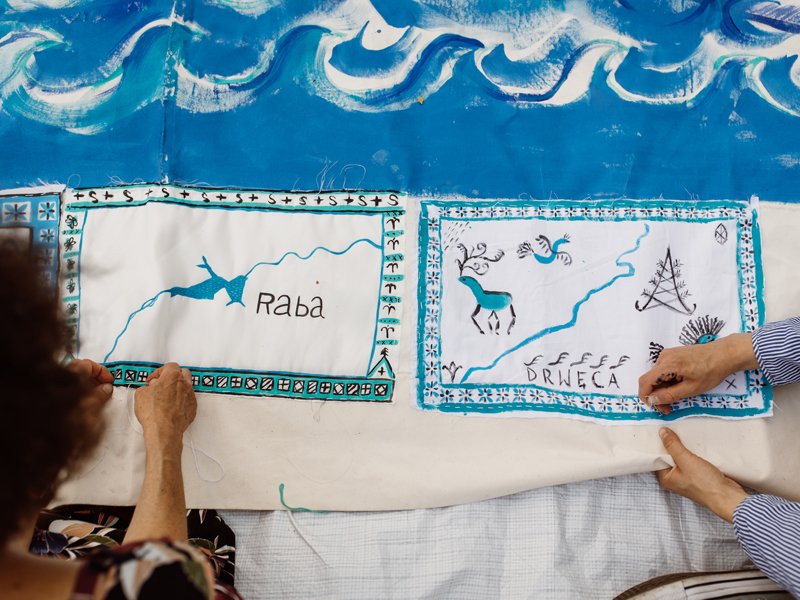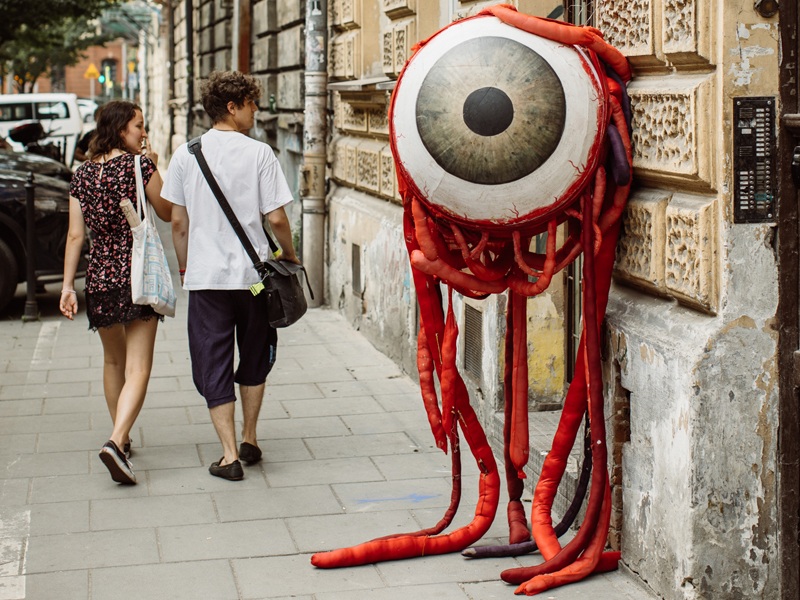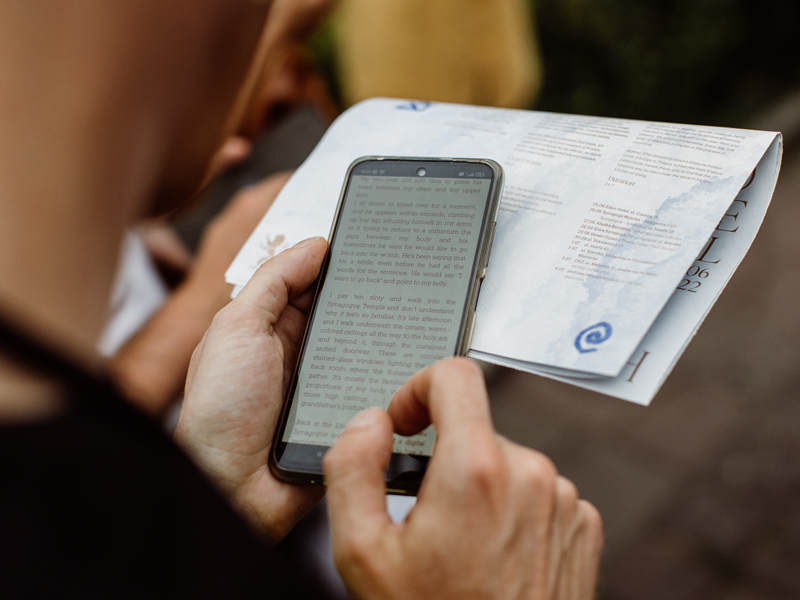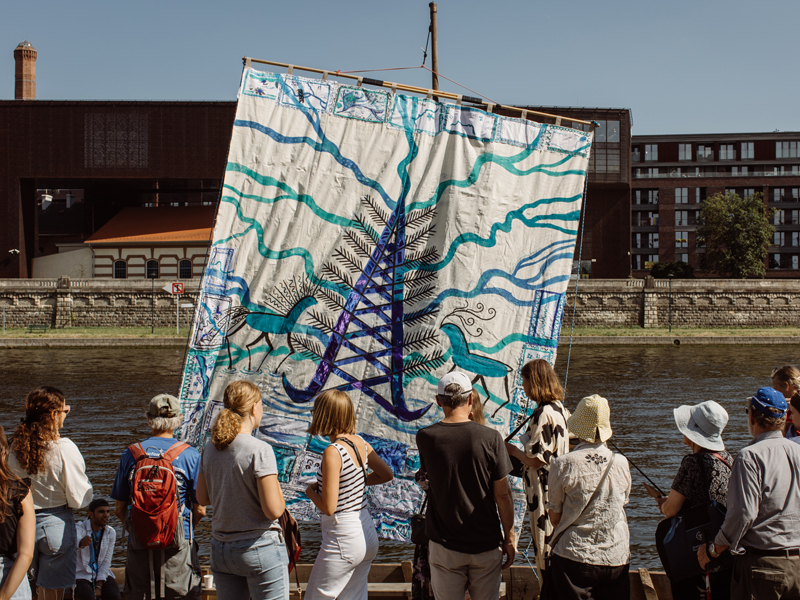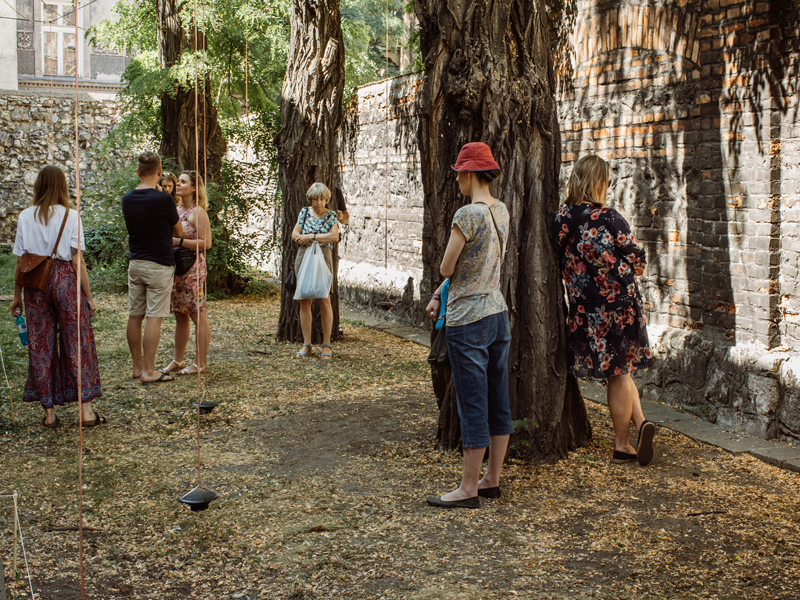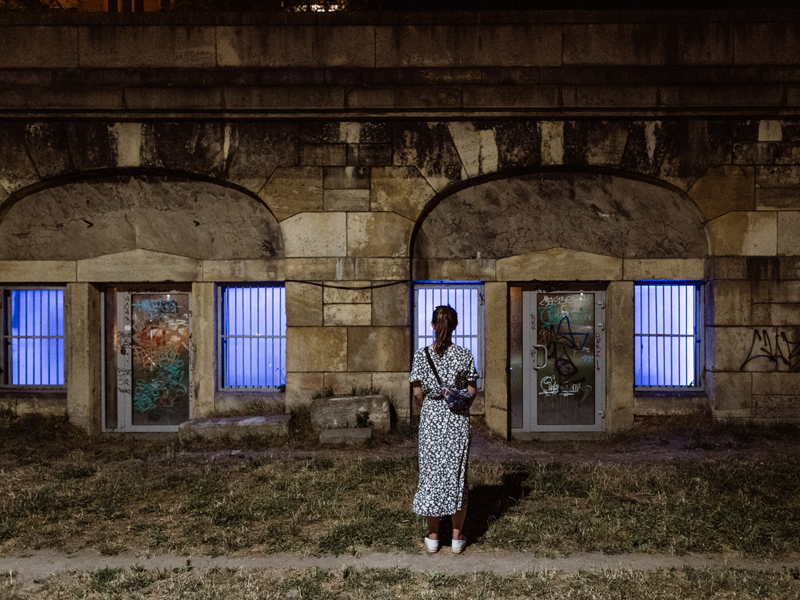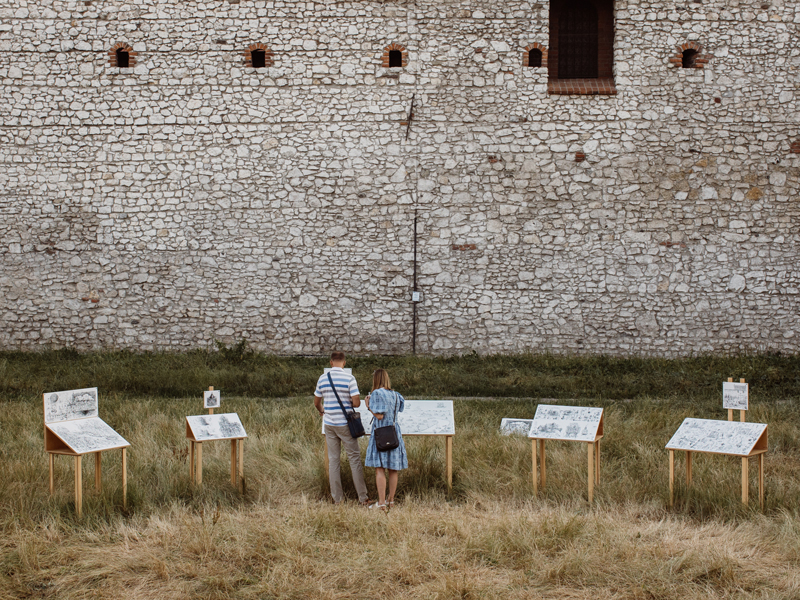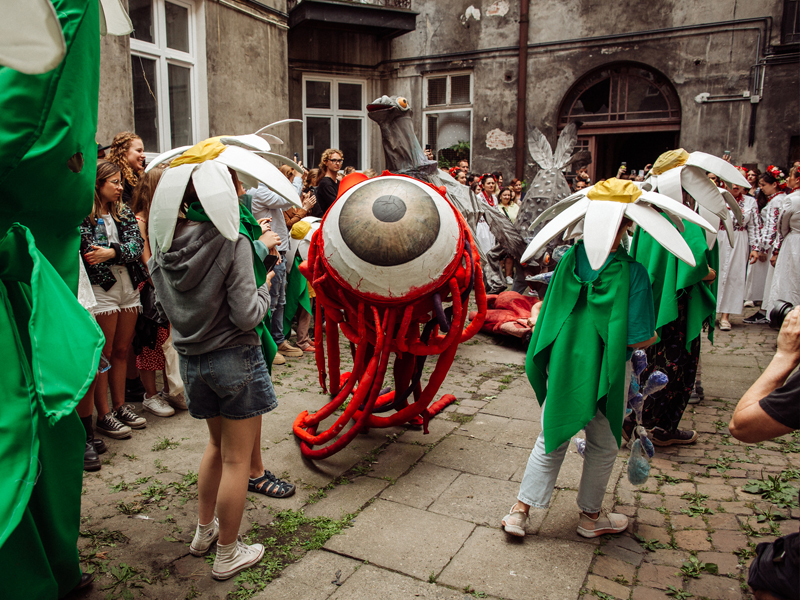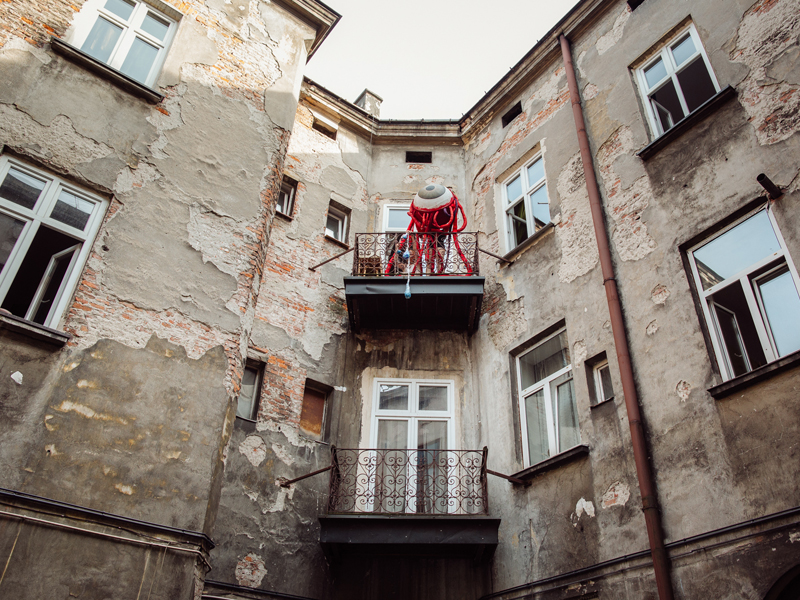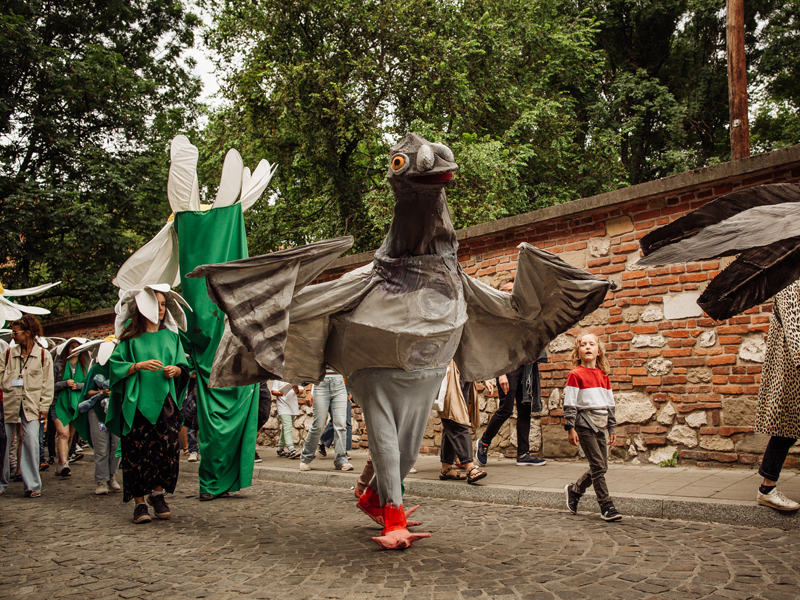31st Jewish Culture Festival in Kraków | a summary
The Festival is our personal story about history and about faith, about today and about hopes for future which we link with the observance of the values inscribed in the religious and secular culture of the Jews. Written with the four elements of creation, this story shows its life-giving sources which breed the passion for further stories. The Festival liberates itself from the authority of the historical dogmas, cultural stereotypes and faded pictures distorting the Polish-Jewish history – it is a road sign and not a road. The road must be found be everyone by themselves.
The elements, in equal measure, favor humans, and make up a deadly threat for them. (…) In the third Festival edition, devoted to the four elements in the Jewish tradition, we are going to talk about water: to begin with the act of creation, and to end with the irrigation of deserts and water desalination in Israel.
And we will discuss, if there is still any spring which has not been plugged up, where both the Poles and the Jews can meet to give each other some hope that healing is still possible?
Water is a cosmic power. Water purifies. Water is the source of life.
Janusz Makuch, founder and director of the JCF

The program of the 31st edition of the Jewish Culture Fetsival – the largest in the world festival that presents the contemporary Jewish culture, included lectures, workshops, meetings, guided tours, artistic projects, film screanings and concerts, the latter ones especially valued by its audience, as well as other music events, which for many years have become the Festival brand of quality. This edition of the festival featured 108 events in the main program and 75 accompanying events.
65 events, out of 108 in total were made especially for the festival, many had Polish or even world premieres and 28 were streamed live on our website.
The definite majority of the Festival events were held in the Festival Tent, which, already since 2019, has been the beating heart of the Festival, whilst its concerting stage has remained the Tempel Synagogue.
This year, the Festival featured five concerts in the Tempel synagogue. The first of them was a chamber concert within the Classics at Noon series, performed by the great Volare quartet – created especially for the festival by the Ukrainian students of the Krakow Academy of Music. Another concert in Tempel made a part of Frank London’s project, Ghetto Songs, created for Beit Venezia. A Home for Jewish Culture – a Jewish culture center in Venice, one of the main partners of this year’s Festival.
Another project which premiered at our stage was Jeremiah Lockwood’s Golden Ages – Hassidic Revival of Cantorial Music in Brooklyn – which is also accompanied by a vinyl record, issued by our Society.
The icon of Israeli contemporary music – Liraz – made her performance at the closure of the JCF. It was an exceptional concert, because it was for the first time that the Israeli musicians were accompanied by three artists from Iran who secretly came to Krakow and performed with their faces veiled to avoid troubles back home.
The greatest popularity was enjoyed by the Friday concert, Bajgelman. Get to Tango featured by Bester Quartet, Grażyna Auguścik, Dorota Miśkiewicz and Jorgos Skolias.
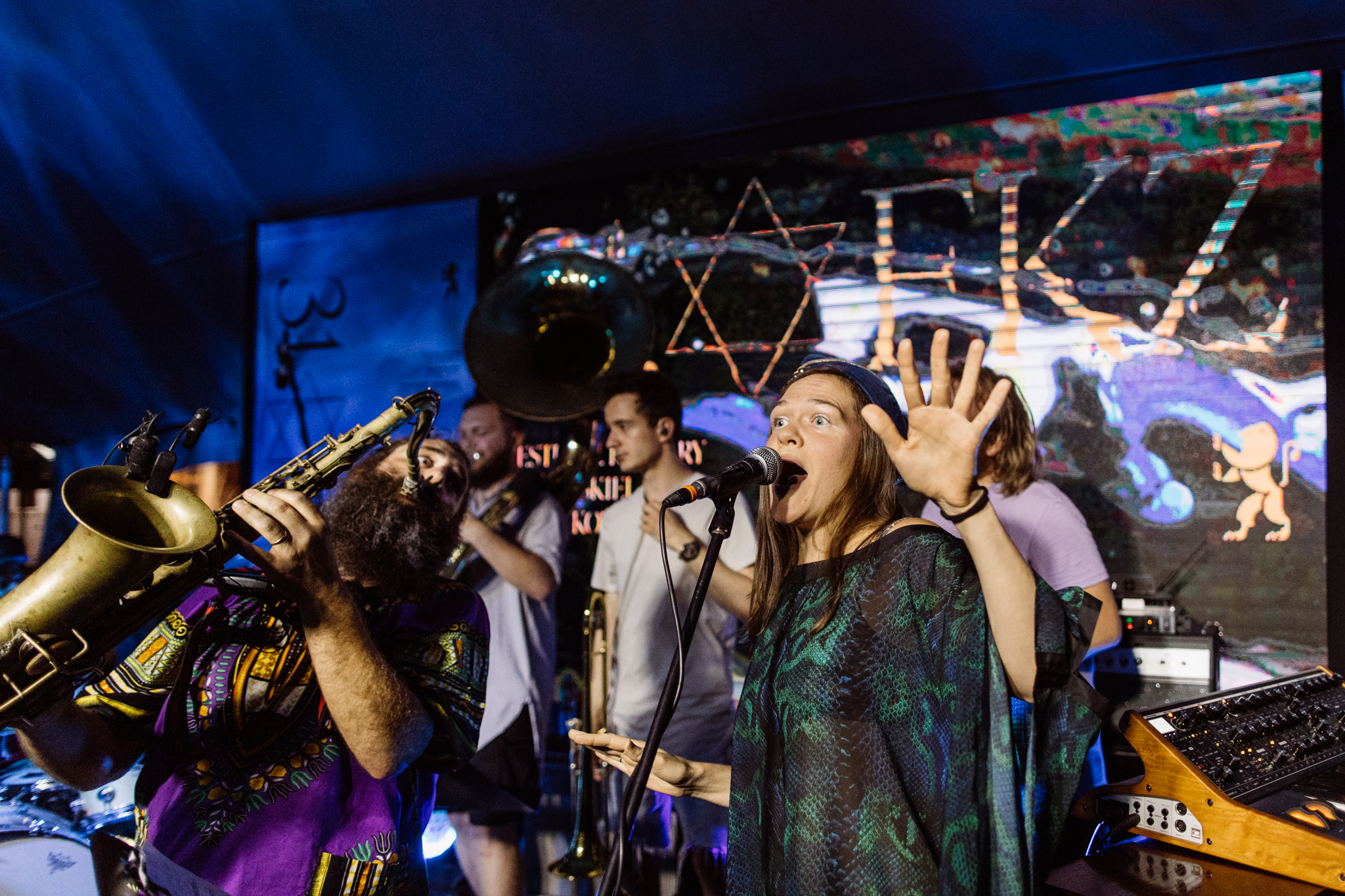
Concerts were also held in the Festival Tent. Especially for us, Frank London prepared concert of Hassidic Niggunim from Galicia and Jeremiah Lockwood with cantor Yoel Kohn presented Khazones Soul Party – the second concert within the Classics at Noon series, this time presenting the chazzanut music.
After a two-year’s break we returned to the tradition of the night jam sessions in Alchemia, in which we could listen to almost all Festival musicians performing in spontaneous and sometimes very original configurations.
The music program was completed with DJ sets and radio programs for Radio Krakow and OFF Radio Kraków, broadcast live from the Festival Tent.
The last event of the 31st JCF was the concert of an Israeli band, Malox with a Polish vocalist, Maniucha Bikont, which was the fourth concert within a series of concerts which Malox recorded in its Festival residence at the Alchemia club, when Polish and Israeli musicians made their first record together.
The leading theme of the 31st JCF – water – was most visible in a series of lectures, delivered by Ifor Duncan, Rabbi Boaz Pash (who deivered two lectures: 1/2), Konstanty Gebert and Janusz Makuch. The second series of lectures, devoted to antisemitism and antizionism, was inspired by a question if purification in the Polish-Jewish relationships is possible. The attempt to answer this question was made during a debate between: professor Stanisław Krajewski, professor Jan Hartman and professor Yossi Klein Halevi, and lectures with professor Joanna Tokarska-Bakir, Konstanty Gebert and professor Jacek Leociak. Unfortunately, due to health problems, professor Gotz Aly had to cancel his participation in the Festival.
Both water and antisemitism were present in the meetings within the Literary Program of Festival, co-organized together with the Krakow Festival Office, in which the leading voices were Anna Bikont and Małgorzata Lebda. The third meeting within this cycle, which featured Łukasz Barys, Olga Drenda, Igor Jarek and Elżbieta Łapczyńska concerned new urban legends and presented some reference to a series of artistic projects of Maiseh, prepared especially for this year’s edition of the JCF.
Maiseh – which means story in Yiddish – was a series of site-specific artistic interventions in the public space of Kazimierz. After Kumzits (2021), it was the second collaboration of the Jewish Culture Festival with the Curatorial Collective for Public Art (Berlin) and HaMiffal (Jerusalem). During Maiseh, Polish, Israeli and German artists (Wojtek Blecharz, Hadassa Goldvicht, Cecylia Malik, Stefanie Oberhoff, Christoph Rothmeier, Kobi Vogman and Yuval Yairi) presented their interpretations of legends rooted in Krakow and in Ukraine shaped as performances, drawings, murals, sound installations, workshops, and letters in the public space. Here you can learn more about Maiseh.
However, this was not the only Ukrainian motif within our program. Knowing that a large share of Krakow residents is made up by Ukrainian war refugees, we wanted to offer something for them within the JCF program.
The whole Festival program booklet was translated into Ukrainian, and also many of the events had Ukrainian motifs – apart from the above concert of the Volare quartet and references to Ukranian legends in the Maiseh project, we have prepared a tour of Kazimierz in Ukrainian, workshops of Jewish Ukrainian songs and painting workshop with the mezen technique which is very popular in Ukraine.
It was a great honor for us to host in the Festival Tent, a true legend of the Polish film and television – Stanisław Janicki, a longtime host of the program „W starym kinie” (“In an Old Cinema”). Especially for us he prepared a lecture, Not just about old (Jewish) cinema and two film screenings.
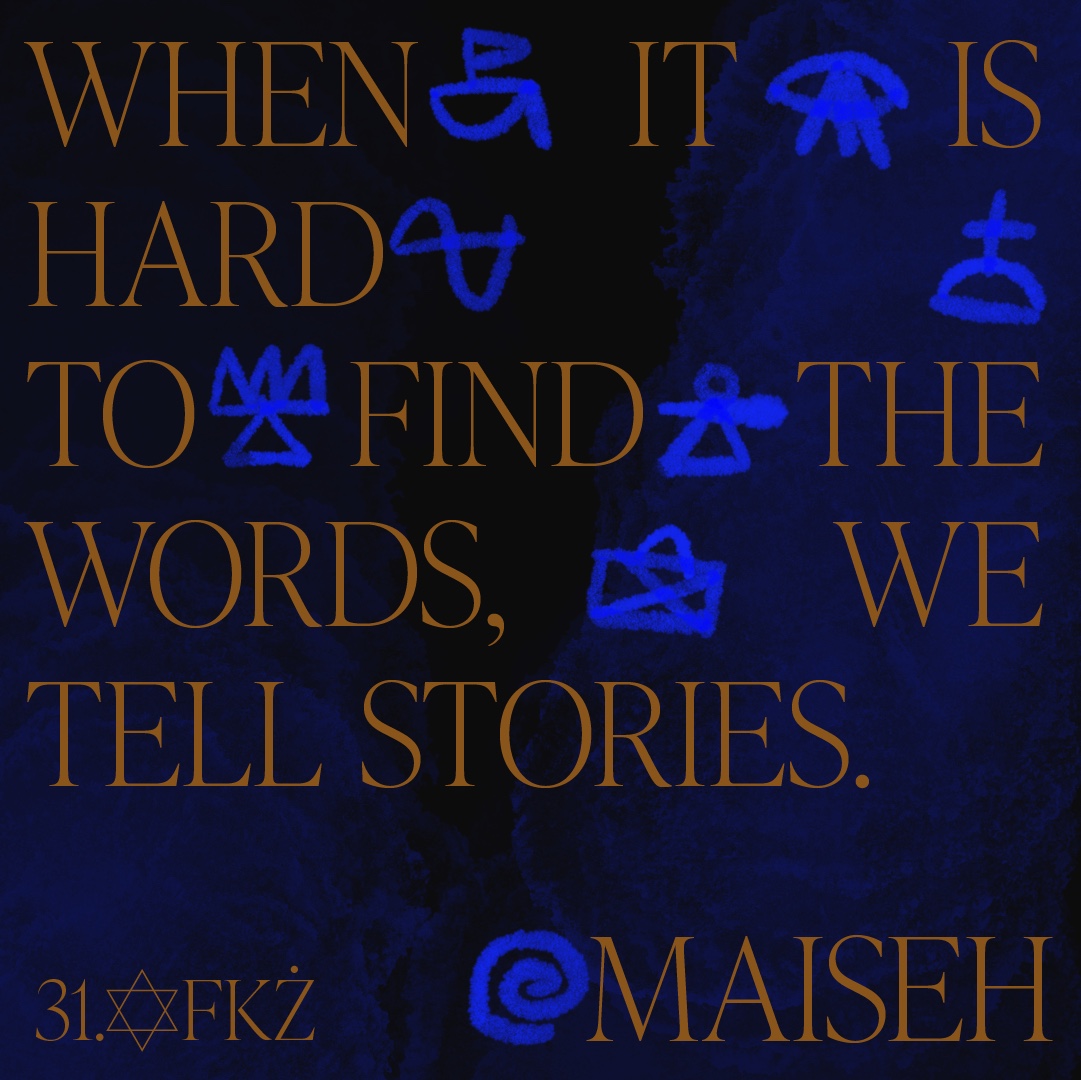
Like each year, the JCF also featured the events within the Workshops for Seniors – a cycle of events prepared by our volunteers for Krakowian seniors. Also the Festival program included the tours with Anna Kiesell and Paulina Żelazko, as well as with Rabbi Boaz Pash, or Janusz Makuch, who also recorded special radio program for Radio Krakow that was broadcast on the first evening of the festival.
We also invited festival audience to Shabbat Brunch with live DJ-set and to Zahor – ceremony commemorating Krakow Jews, accompanied by mini-recital by Jarosław Bester.
While preparing this edition of festival we started to co-operate with two new foreign institutions: first of them was the already mentioned here, Beit Venezia. A Home of Jewish Culture, which accompanied us in the preparation of an exhibition, Living Under Water. We also prepared a talk with the artists taking part in the exhibition, which made up a part of a larger project involving Jewish artists from worldwide searching for the Jewish answer to the climactic crisis. The fruit of this collaboration was also the creation of two publications – in Polish and in English: Living Under Water / Życie pod wodą with essays, written especially for the book by Marc Epstein, Shaul Bassi, Jonathan Sacks, Małgorzata Lebda and Nigel Savage featuring also the works of Andi Arnovits, Ken Goldman, Meydad Eliyahu, Leora Wise and others. The result of the second collaboration – with the Coalition for Pluralistic Public Discourse from Germany – was a series of discussions, workshops and presentations under a joint title, Future of Memory.
31th JCF in figures
108 events 31st JCF, including:
22 musical events
(concerts, DJparties, radio programs, jam session, sound installations)
46 events within Maiseh project
13 lectures, meetings, discussions
8 guided tours and workshops
3 events within Literary Program
3 events within Workshops for Seniors
5 evetns within Future of Memory
1 exhibition
7 other events
(details of events available at the end of this page)
101 artists, lecturers, instructors
from 9 countries: Poland, Israel, Ukraine, USA, Germany,
Iran, Latvia, United Kingdom, Italy
65 volunteers
from 20 countries: Poland,
Israel, Netherlands, Azerbaijan, Finland, France,
Spain, China, USA, Italy, Germany,
Mexico, Belarus, Portugal, Pakistan, Bangladesh,
Jordan, Turkey, United Kingdom, Ukraine, including
5 senior volunteers
15 951 participants within the audience
28 264 participants within online audience
53 127 users of the website
225 878 views of the website
23 581 number of followers on Facebook (+614)
14 029 subscriptions on YouTube (+ 829)
3 743 followers on Instagram (+563)
445 988 total reach of the posts about 31st JCF
in festival’s social media (posts FB + IG, reelsy and live)
41 713 activities with posts on FB and IG
10 520 views of festival’s profile on FB
216 information in Polish media
157 924 reach in social media
232 118 reach outside of social media
130 162 PLN value of AVE
140 User Generated Content (UGC)
The above data concern the period between May 1st and July 7th, 2022. Sources: statistics from Facebook, YouTube and Instagram and Brand24.

